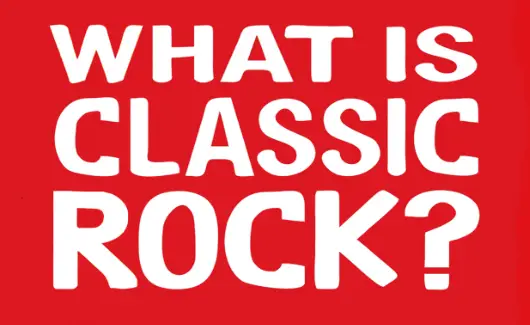
Best Read of the Day: Why Classic Rock is in Trouble
I love reading newspapers. And I mean proper newspapers on dead trees that are delivered to my front door before dawn. There’s nothing like spreading out on the couch with a couple of broadsheets, a cup of coffee and the dogs for a long browse before the day begins.
But like a lot of newspaper fans, I know that print is going to through a rough and prolonged transition. Anyone else notice that the first page of the front section of the Globe and Mail is no longer printed on that glossy white paper? It’s back to grey, dull newsprint. Cost-cutting.
I was thinking of my newspaper habits when I ran across this article on the the slow demise of classic rock. It sure ain’t what it used to be. Check this out from FiveThirtyEight and try to be as analytical and dispassionate as possible.
Led Zeppelin is classic rock. So are Mötley Crüe and Ozzy Osbourne. But what about U2 or Nirvana? As a child of the 1990s, I never doubted that any of these bands were classic rock, even though it may be shocking for many to hear. And then I heard Green Day’s “American Idiot” on a classic rock station a few weeks ago, and I was shocked.
It was my first time hearing a band I grew up with referred to as “classic rock.” Almost anyone who listens to music over a long enough period of time probably experiences this moment — my colleagues related some of their own, like hearing R.E.M. or Guns N’ Roses on a classic rock station — but it made me wonder, what precisely is classic rock? As it turns out, a massive amount of data collection and analysis, and some algorithms, go into figuring out the answer to that very question.
No one starts a band with the intention of becoming classic rock. It’s just sort of something that happens. Figuring out which genre a band fits into — is it techno or house? — has always been a tricky part of the music business. Identifying what’s classic rock is particularly challenging because it’s a constantly moving target, with very different kinds of music lumped together under the same banner. How the people who choose what music you hear — whether on the radio or an Internet streaming service — go about solving this problem reveals a deep connection between data and music.
And what of audiences for classic rock? Yes, there will always be a demand for what is (and always will be) some of the greatest rock of all time. But for how much longer will classic rock radio stations be able to attract a decent-sized audience? Many listeners have long since aged out of the prime ad demo of 25-54. Sorry to say it, but classic rock is to a lot of today’s music fans the equivalent to what Sinatra and Elvis were to Boomers when this music was young. Classic rock has become the new oldies.
Again, don’t get me wrong: people will always love this stuff. But how much longer can the music and radio industry go to this well before everyone (audience and performers) die off?
Which reminds me: the new Judas Priest album is out today. Gotta go have a listen.




On a similar note, I was taken aback today when I made reference to Under the Bridge, my two coworkers (ages 18-20) have no idea what I was talking about, nor have they any recollection of ever hearing that tune!! What’s happening to music and our youth?! Done rant.
Ya, I die a little inside when I hear Nirvana or anything else from the 90’s on Chez 106. Classic rock? Get your head checked.